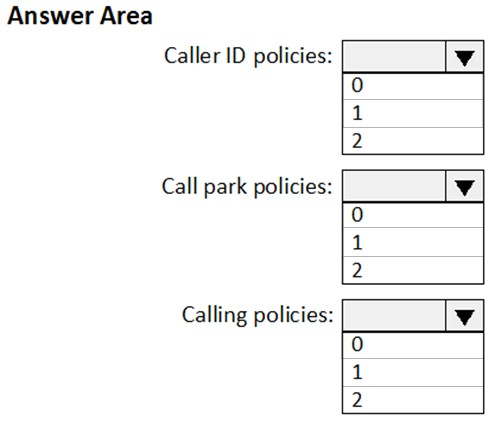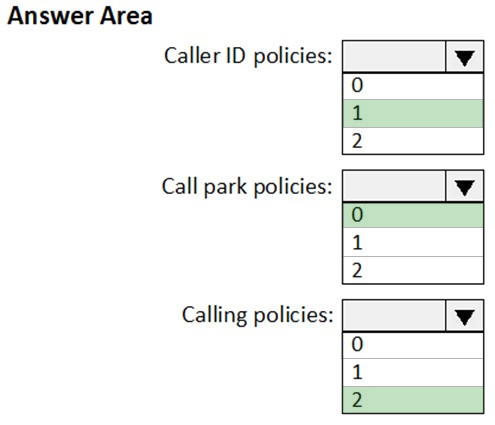

HOTSPOT -
Your company has a Microsoft 365 subscription that uses Phone System.
You need to configure the environment to meet the following requirements:
✑ Only users in the company's sales department must have Call forwarding and simultaneous ringing to external phone numbers set to Off.
✑ Only users in the marketing department must have Inbound calls can be routed to call groups set to Off.
✑ All outbound calls to the PSTN must use the auto attendant number as the caller ID.
What is the minimum number of policies that should be created? To answer, select the appropriate options in the answer area.
NOTE: Each correct selection is worth one point.
Hot Area:

Greysi
Highly Voted 4 years, 3 months agoDEberhardt
4 years agoBen05
3 years, 8 months agoBigO76
6 months, 1 week agoPrettyFlyWifi
3 years, 6 months agokenedruc
3 years, 6 months agoPN20
3 years, 2 months agoBswizzle
2 years, 2 months agoConcervative
3 years, 10 months agoSheru
4 years, 3 months agoGreysi
4 years, 3 months agoIamrandom
Highly Voted 3 years, 6 months agoL33D
2 years, 11 months agoteamtechnik
Most Recent 8 months agoNokwai
1 year, 10 months agododo_on_tour
2 years, 6 months agojodtzz
2 years, 6 months agoB000001
3 years, 6 months agoB000001
3 years, 6 months agoshubhb11
3 years, 6 months agomkoprivnj
3 years, 7 months agoYupItsMe
3 years, 10 months agoostumm
3 years, 7 months agoPrettyFlyWifi
3 years, 5 months agoMike3d
3 years, 7 months agoShaneGD
3 years, 10 months ago